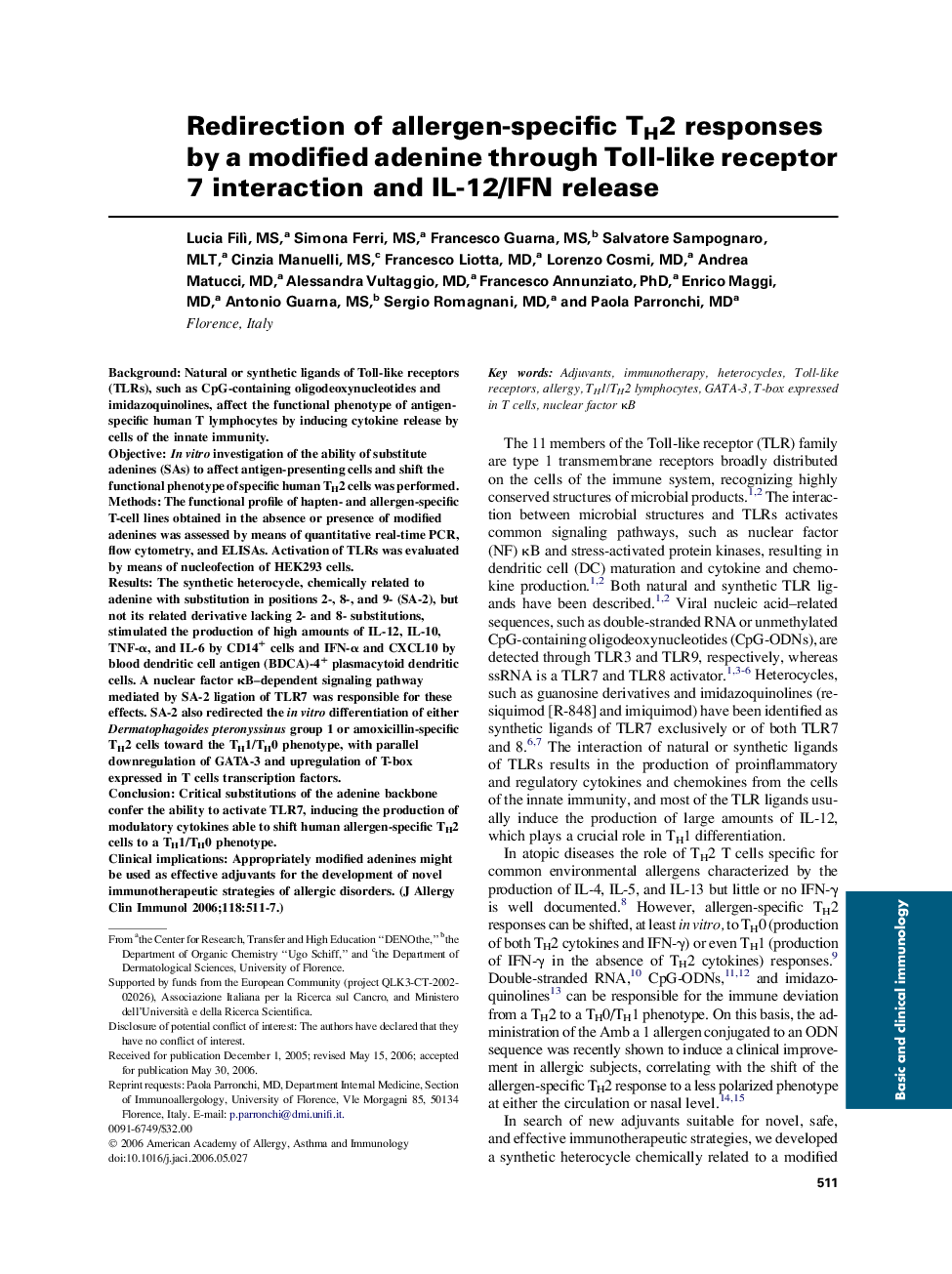| Article ID | Journal | Published Year | Pages | File Type |
|---|---|---|---|---|
| 3203004 | Journal of Allergy and Clinical Immunology | 2006 | 7 Pages |
BackgroundNatural or synthetic ligands of Toll-like receptors (TLRs), such as CpG-containing oligodeoxynucleotides and imidazoquinolines, affect the functional phenotype of antigen-specific human T lymphocytes by inducing cytokine release by cells of the innate immunity.ObjectiveIn vitro investigation of the ability of substitute adenines (SAs) to affect antigen-presenting cells and shift the functional phenotype of specific human TH2 cells was performed.MethodsThe functional profile of hapten- and allergen-specific T-cell lines obtained in the absence or presence of modified adenines was assessed by means of quantitative real-time PCR, flow cytometry, and ELISAs. Activation of TLRs was evaluated by means of nucleofection of HEK293 cells.ResultsThe synthetic heterocycle, chemically related to adenine with substitution in positions 2-, 8-, and 9- (SA-2), but not its related derivative lacking 2- and 8- substitutions, stimulated the production of high amounts of IL-12, IL-10, TNF-α, and IL-6 by CD14+ cells and IFN-α and CXCL10 by blood dendritic cell antigen (BDCA)-4+ plasmacytoid dendritic cells. A nuclear factor κB–dependent signaling pathway mediated by SA-2 ligation of TLR7 was responsible for these effects. SA-2 also redirected the in vitro differentiation of either Dermatophagoides pteronyssinus group 1 or amoxicillin-specific TH2 cells toward the TH1/TH0 phenotype, with parallel downregulation of GATA-3 and upregulation of T-box expressed in T cells transcription factors.ConclusionCritical substitutions of the adenine backbone confer the ability to activate TLR7, inducing the production of modulatory cytokines able to shift human allergen-specific TH2 cells to a TH1/TH0 phenotype.Clinical implicationsAppropriately modified adenines might be used as effective adjuvants for the development of novel immunotherapeutic strategies of allergic disorders.
